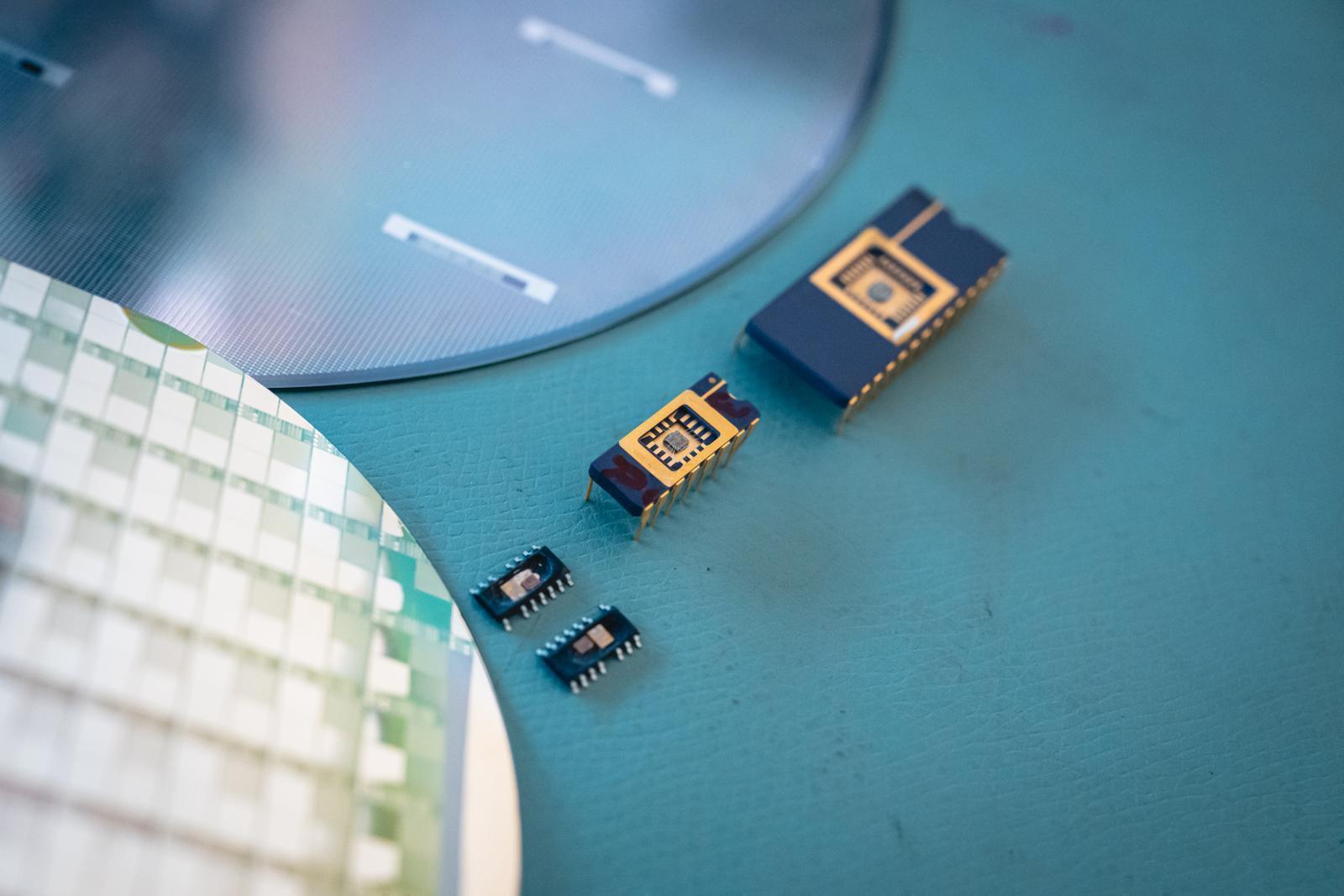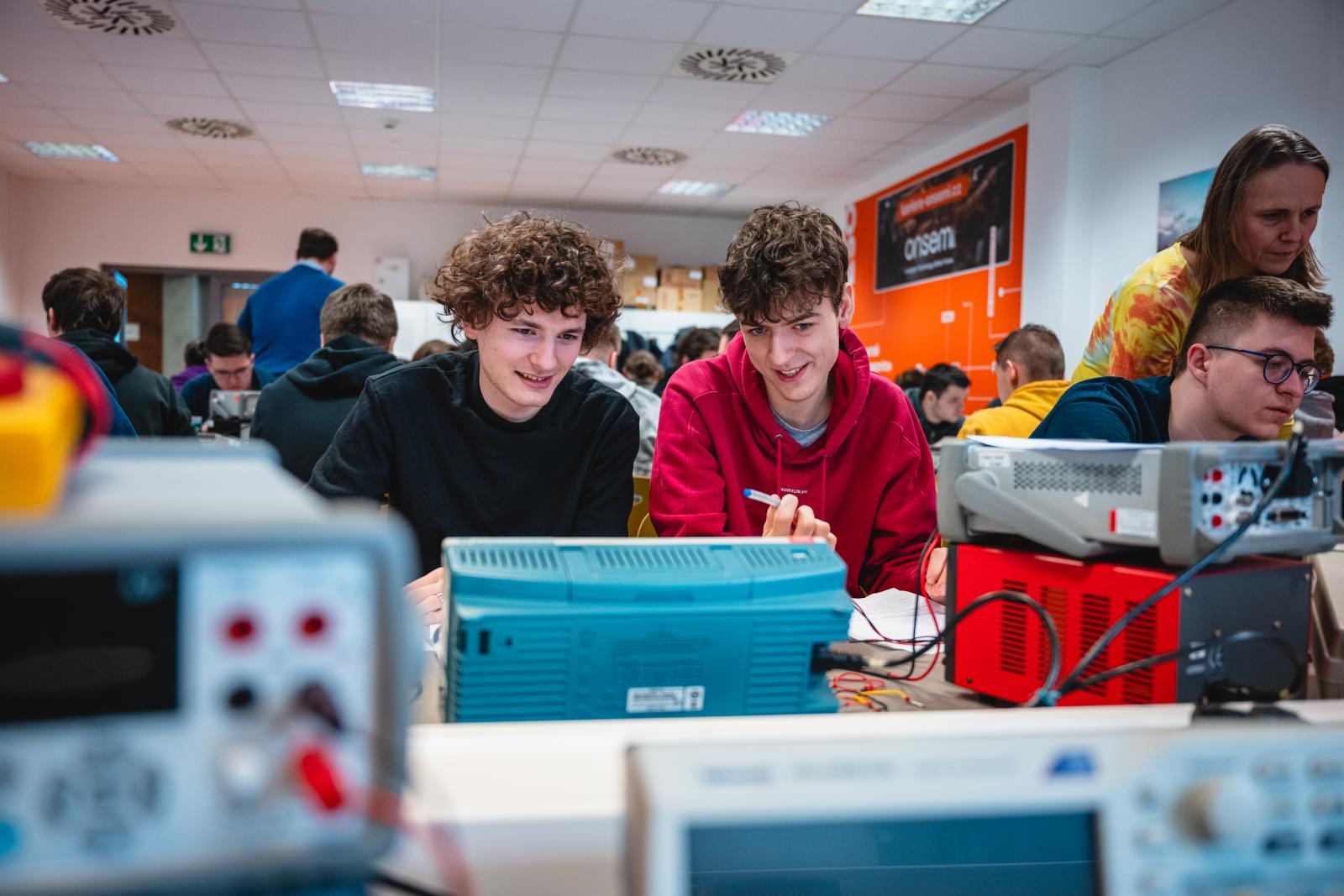Czech semiconductors on the rise: international cooperation between scientists and manufacturers will boost the chip economy in Czech regions
The Czech National Semiconductor Cluster is changing the face of Czech industry and education. With the support of its 42 members – both universities and companies – the Czech Republic is creating an environment for the development and production of semiconductors, including chips crucial for the electronics and automotive industries, which can fundamentally strengthen the economy and international cooperation of the Czech Republic. The efforts of the last years, negotiations and cooperation have clear goals: to position the Czech Republic as a strong player in the semiconductor market not only in Europe. And this brings with it new study programs, jobs and investment opportunities.

The Czech National Semiconductor Cluster (CNSC) develops semiconductor diplomacy and semiconductor competencies of its members from industry, universities, institutes of the Academy of Sciences and other entities across the Czech Republic. In addition to companies such as onsemi and Codasip, Czech technical universities such as Brno University of Technology, Prague University of Technology, UWB in Pilsen and others play a key role in the development of the semiconductor sector.
In addition to teaching new study programmes, universities are involved in European initiatives such as Digital Europe, where VUT is implementing the Chips of Europe project, or Chips JU, which is creating a national competence centre for semiconductors, the Czech Semiconductor Centre. However, the set of measures to promote the independence of the European Union in semiconductors and chip manufacturing, in the legislation of which, among others, personalities from the Czech Republic have participated, is much broader. One of the goals is to develop the study of semiconductors at a level that would provide the Czech Republic with enough experts.

"Promoting semiconductor education is one of the five areas of the approved National Semiconductor Strategy initiated by the CNSC. It includes a plan to reach a state of 9,000 skilled workers in the semiconductor industry by 2029. There are specific tasks corresponding to this. Despite the significant achievements of Czech universities, none of the individual domestic universities can be considered world-class in the field of semiconductors, but if their capacities and competences are effectively combined, we can already talk about global ambitions. This is one of the roles of the CNSC," says Michal Lorenc, Vice President of the Czech National Semiconductor Cluster.
Semiconductors: the Future You Want to Study
Leading technical universities are responding to the demand for semiconductor experts, of which there is currently a shortage of around 3,000 in the Czech Republic. The Czech Technical University in Brno (CTU), the Technical University of Liberec (TUL), the Technical University of Ostrava (VŠB-Technical University in Ostrava) or the University of West Bohemia in Pilsen (UWB) offer entire study programmes.
"People are becoming increasingly aware of the importance of chips and semiconductors in society and in everyday life. This is also reflected in the increased interest in study programmes focused on teaching semiconductors and microelectronics in general at the BUT. At the FEEC alone, there are already 25 percent more applications for relevant programmes than in previous years, and applications are open until the end of March. This is also one of the goals of the National Semiconductor Strategy - to increase the number of students in these programs," says Jiří Háze, vice president of the CNSC and head of the Institute of Microelectronics at the BUT.

The pilot project of contract funding approved by the government at the beginning of 2025 is also supporting interest in the study. Its aim is to make the field more attractive through scholarships, internships and direct cooperation with companies that offer real jobs during the study.
Many of the universities have links to overseas semiconductor research and manufacturing. For example, there is cooperation with the German Silicon Saxony association based in Dresden or the Taiwanese company TSMC. Other Taiwanese semiconductor companies are planning to expand into the Czech Republic in the first half of this year.
Czech cooperation with Taiwan
A major role in international cooperation is played by relations with Taiwan, a leader in chip research and manufacturing. Taiwanese companies are financing the establishment of three research centres in the Czech Republic and are considering investments here. Students from the BUT go to Taiwan for internships to learn how to design chips with artificial intelligence or how to deal with their cyber security. In the future, Taiwanese companies may set up their headquarters in the Czech Republic, which will bring with it a demand for more chip experts and job opportunities in individual regions. An example of how this can work is the manufacturing plant of the US firm onsemi in Rožnov pod Radhoštěm.
Rožnov: The city where billions of chips are made
A major player in the chip market is onsemi, which last year announced a $2 billion investment to expand its plant in Roznov pod Radhostem. The investment would see the plant produce smart power semiconductors, which are essential for improving the energy efficiency of electric vehicles, renewable energy sources and artificial intelligence data centres. Onsemi currently has over 1,600 employees and produces 3 billion chips and 3 million semiconductor wafers annually.
"Our experience at onsemi clearly confirms that the development of the semiconductor industry has a major positive impact on the regional economy. In our Rožnov plant alone, we have invested billions of crowns in modernising production in recent years. This is also linked to the demand for technically educated employees, which is why we are working closely with universities and secondary schools to popularise technical fields of study and the creation of specialised fields of study. We perceive the Czech Semiconductor Cluster as a key platform for interdisciplinary cooperation, which will enable even more effective interconnection of research, production and education," said Radek Václavík, director of the onsemi design centre and member of the BUT Industrial Council. "With the increasing global demand for chips, we expect that expanding production at onsemi will bring long-term stability and competitiveness to the entire region. For example, we have been working together for a long time to identify potential new suppliers from the Czech Republic. At the same time, a significant number of the foreign suppliers with whom we are negotiating are planning to set up offices in the Czech Republic or service equipment through local companies," he added.
Czech quality on a global scale
Currently, the USA, South Korea, Taiwan and China are among the most important chip manufacturers. Europe is strong in the segment of chips for power applications, including silicon carbide-based solutions. The Czech Republic is on a par with Germany, Austria, France or Italy in this area. The Czech Republic's position in the semiconductor industry is promising with the potential to make a significant impact on the European and global market. However, the goal is primarily to develop so-called fabless companies, i.e. companies that focus on the design and application of chips and outsource their production. It is in this area that the Czech Republic can shine in the coming years thanks to the efforts of the CNSC.
For more information, see the press release.
| Published | |
|---|---|
| Link | https://www.vut.cz/en/but/f19528/d285315 |





